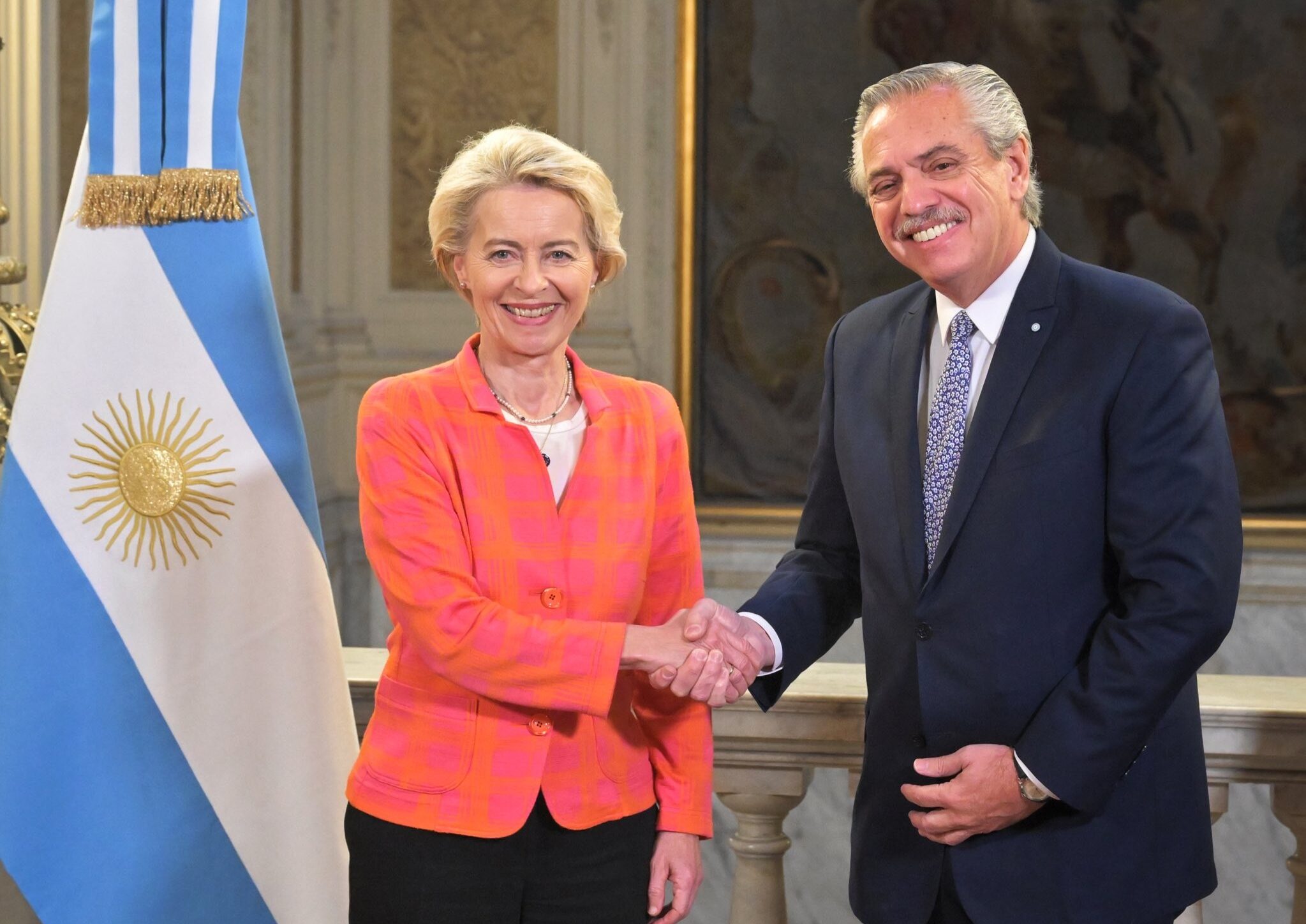Will the European Union electrify itself with Argentina’s lithium?

The European Union has signed a memorandum with Argentina on critical energy raw materials, such as lithium. All the details
The President of the European Commission, Ursula von der Leyen, and the President of Argentina, Alberto Fernández, yesterday signed a memorandum of understanding for the creation of a raw materials supply chain for the ecological and digital transitions. The agreement is part of the Global Gateway , the European Union's strategy for building infrastructure around the world which aims to offer an alternative to the Chinese Belt and Road Initiative (or New Silk Road).
– Read also: Critical minerals, all the EU's anti-Chinese plans
WHAT IS THE EU-ARGENTINA AGREEMENT?
The partnership between Brussels and Buenos Aires will therefore concern the creation of both hard and soft infrastructures. The first term refers to physical works, such as roads or bridges; the second, however, refers to services and systems useful for the economic and social well-being of populations: more solid financial institutions, for example, or special economic zones for manufacturing development.
The two parties will collaborate in the integration of their respective supply chains for critical materials and in the joint development of projects and research on minerals, on minimizing the environmental impact of activities and on the recovery of waste (circular economy).
As stated in the European press release, the agreement with Argentina “aims to guarantee the development of a secure and sustainable supply of the raw materials necessary for the energy and digital transition. It also aims to develop a sustainable raw materials industry and to support the creation of local added value, quality employment and sustainable and inclusive economic growth, to the benefit of both parties".
LITHIUM
The memorandum then serves to guarantee the European Union supplies of lithium of non-Chinese origin: Beijing is responsible for 28 percent of the extraction and 58 percent of the global refining of lithium, an indispensable metal for batteries. Brussels would like that, by 2030, no more than 65 percent of the annually consumed quantity of a strategic material comes from a single third country.
“Lithium is very important because it is crucial for clean energy technologies,” von der Leyen said during the press conference in Buenos Aires. According to forecasts – cited by the president herself – by 2030 the European demand for litho will increase twelvefold due to the expansion of electric mobility and renewable plants, which need the support of storage devices.
Argentina is the fourth largest producer of lithium in the world and represents one of the vertices of the so-called South American " Lithium Triangle ", together with Chile and Bolivia: the three countries concentrate 56 percent of the global deposits of this metal within them.
Von der Leyen added that Argentina has what it takes to be not only an exporter of lithium, but also a large producer of electricity and hydrogen from renewable sources (solar and wind).
THE TRADE AGREEMENT WITH MERCOSUR
The memorandum with Argentina came as the European Union and Mercosur, the South American common market, are on their way to concluding negotiations for a trade agreement, which is expected to be concluded by the end of 2023.
Von der Leyen said he wanted to finish the negotiations "as soon as possible", also because "the bulk of the work has already been done". Fernández, however, was more cautious: he said that South America is asking for "a balanced agreement" and that there are still issues to be resolved, mainly related to agriculture. The Argentine president cited the protective measures that Brussels guarantees to its agricultural market and environmental regulations considered too stringent and harmful for South American producers.
VON DER LEYEN'S JOURNEY IN LATIN AMERICA
Ursula von der Leyen's journey in Latin America is not limited to Argentina, but also includes Brazil, Chile and Mexico. Mexico has lithium deposits, but the feasibility of extractive processes has yet to be well evaluated. Chile, on the other hand, is the world's second-largest exporter of the metal – although much of its ore is refined in China – and has a trade agreement with the European Union.
Brussels has already reached agreements on critical raw materials with Canada , Ukraine, Namibia and Kazakhstan; is engaged in negotiations with Norway and Greenland .
This is a machine translation from Italian language of a post published on Start Magazine at the URL https://www.startmag.it/energia/unione-europea-argentina-materie-prime-critiche/ on Wed, 14 Jun 2023 07:24:00 +0000.
